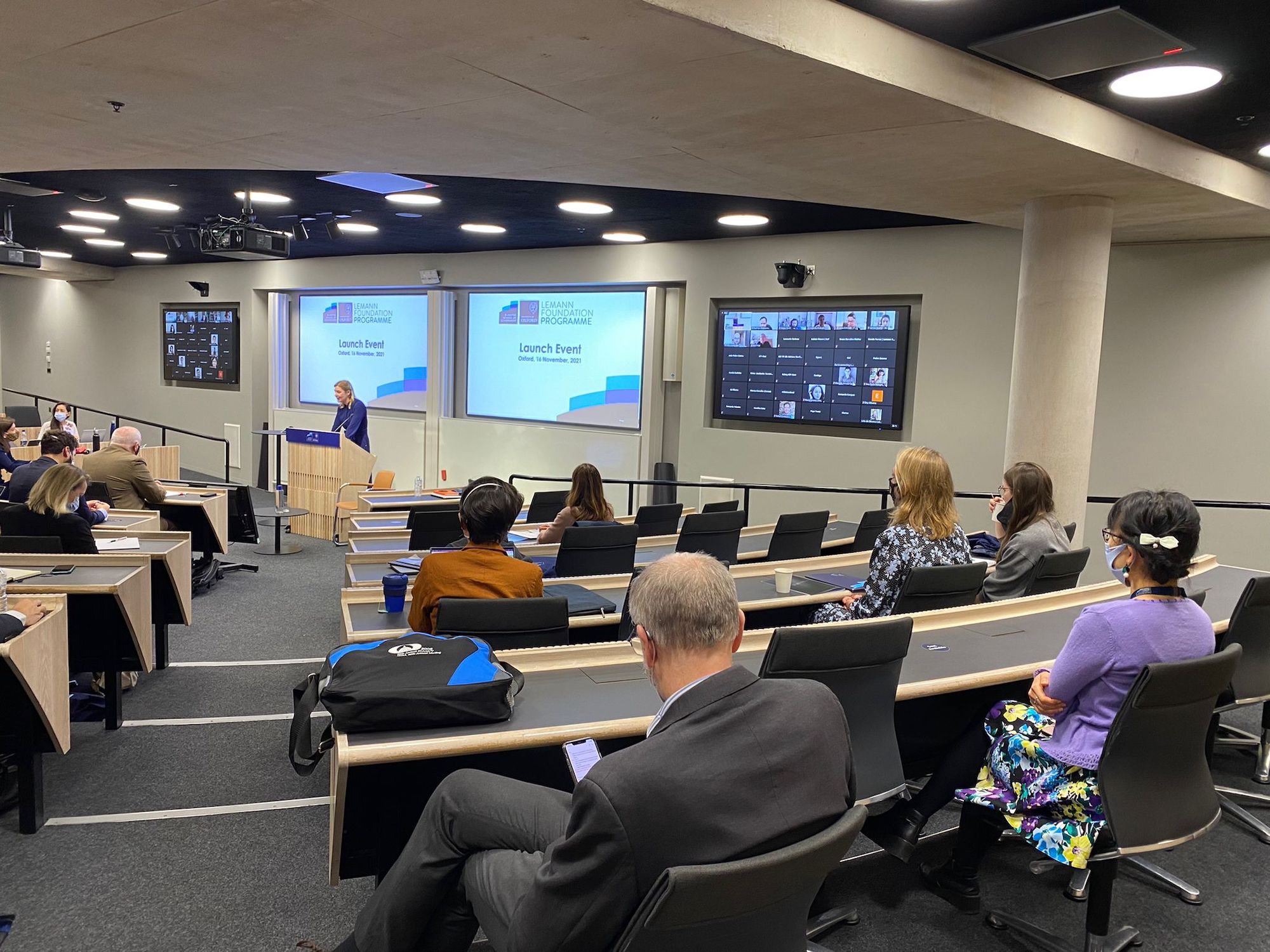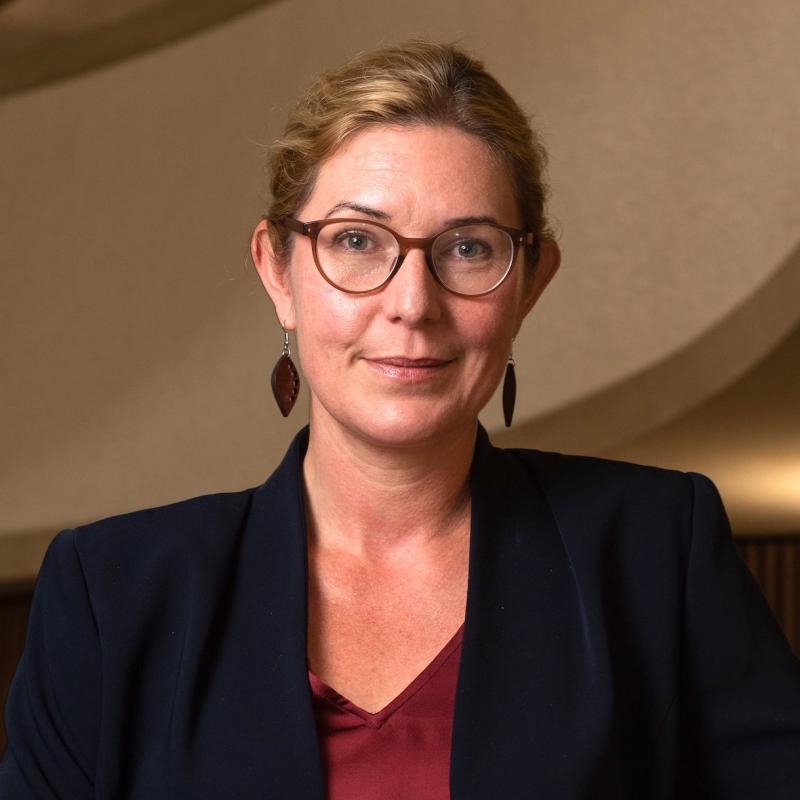Building integrity and challenging polarisation during a global pandemic
Director of the Lemann Foundation Programme at Oxford Anna Petherick outlines the programme's initial research and knowledge exchange priorities and why these matter to Brazil and many other countries across the Global South.

Faculty member Anna Petherick leads the Blavatnik School’s Lemann Foundation Programme, a new research programme generously supported by the Lemann Foundation. Launched in November 2021, the Programme explores what countries can learn from Brazil and vice versa from the point of view of the people and organisations who compose the public sector, as well as those who engage with it. The Programme’s research and engagement plans have already attracted additional funding from sources such as the Public Policy Challenge Fund.
How did you get involved in the Lemann Foundation Programme?
The Blavatnik School of Government has been speaking to the Lemann Foundation for many years – one of the Foundation’s main aims is to improve the public sector in Brazil. Obviously, the School is trying to do that too, but globally. I’ve studied Brazil since 2013, but always as a comparativist, which fits with the School’s global view.
I was brought into the School full-time in 2018 as a postdoctoral researcher on a research project known as the Building Integrity programme, before I moved to being a lecturer. That project was really innovative in how it sought to move the anti-corruption agenda on from thinking beyond individual solutions to corrupt acts and towards more holistic ways to create institutions that are better protected against corruption in the long run. Evidently, this is something that is incredibly important to Brazil and so that work is feeding into the Lemann Foundation Programme.
What does the Programme aim to do and how?
It is a knowledge creation and exchange programme. We deliberately do research that can do something in the world. I think an important element of informing how you have impact through knowledge creation in a school of government, is by listening to people who are actually in the public sector, and really making an effort to understand their problems.
Initially, the Programme is focusing on three topics: building back from COVID-19, understanding (and countering) how political polarisation affects the delivery of public services, and in certain ways we’re also continuing the School’s work on integrity. The twist that takes our work somewhat away from the Building Integrity Programme of a few years ago is that I wanted to make our efforts to build integrity more pragmatic, by placing them in the context of existing anti-corruption efforts—and to explicitly explore what that context means for the integrity agenda. Pretty much every country in the world already has some constellation of compliance laws and other anti-corruption institutions. We need to improve upon what's already out there in the world, rather than imagine we can start afresh.
From your experience carrying out research on Brazil, do you think the anti-corruption and integrity agendas are complementary?
The integrity and anti-corruption agendas can be both synergistic in some respects and potentially antagonistic in others. For example, one of the areas where there are frictions is in thinking about how discretion should operate in the public sector, and the extent to which it should be restricted. If you have quite an aggressive anti-corruption agenda this tends to mean you have a very legalistic administrative culture. Lots of strong constraints are then placed on public servants to minimise their discretion. Countries like Brazil are realising that such restrictions have built up over time, and have led to risk-averse behaviour in the public sector to the point where not much actually gets done, and nobody wants to be the person who signs off on any new policy. This ends up in public institutions with less integrity, because they are not really delivering on their purposes, even if they also have less corruption.
How do you think the research community can help to solve such a complex problem?
Clearly, the answer is not free-for-all discretion in an endemically corrupt context because people will fall back on patronage and personal ties in how they use their discretion. I think the important thing to do is to figure out what the appropriate guardrails are on public sector discretion for different areas of the public sector, for different levels in the hierarchy, and to work hard on positively directing discretion towards better achieving the public good. Ideally, civil servants should be given discretion so that they can draw on their expertise to innovate and solve problems, but they should orientate their discretion towards achieving the public institution’s purpose, assuming that is a legitimate one. You can see the anti-corruption and building integrity agendas need knitting together a little more in the real world and that’s one area where research can help.
Going back to the three themes, why did you choose them and what is their significance in Brazil and beyond?
The three themes were selected because they are incredibly important to the public sector's proper functioning in Brazil, but also because they're important in a lot of other countries.
Building back from COVID-19 matters particularly for Brazil because it's a very unequal country and a lot of building back is about thinking about how inequalities have been exacerbated by the pandemic—and could grow further from this point out.
Political polarisation has also been evident during the pandemic when we look at the inconsistencies in policy content emerging from different levels of government in Brazil, and across subnational jurisdictions. This period has brought into focus how – in general – public sector outputs can be affected when there are deep political divisions barriers to coordination within the public sector.
The Programme already has such strong ties to Brazil – how do you plan to reach other countries and engage them in these three thematic areas?
Here’s an example. One of the policy areas we're working on quite hard at the moment within our building back from COVID-19 workstream is education, because schools were closed for such a long time recently. We know that even during normal school summer holidays, children experience learning loss. When you consider that in some countries schools were closed for nearly two years, you get a sense of the impact this could have.
We've got an exciting engagement project happening this year in education, in partnership with the What Works Hub and Lemann Foundation’s Sobral Center. We are planning to invite 15 high-level policymakers from Kenya and 15 from Pakistan to come to northeast Brazil to foster an exchange of ideas in education policymaking. We’ve selected these three countries because there are great opportunities for knowledge exchange. From a Brazilian perspective, Pakistan is also a highly decentralised federal education system. In Kenya, there have been interesting experiments with something called ‘teaching at the right level’. This involves training teachers to be able to assess what level each child is at and how they're learning, and to adapt what they do in the classroom to try and bring everybody up as much as possible. Practically speaking, this is one of the possible solutions to prevent these worsening inequalities from emerging after long periods of school closures.
Find out more about the Lemann Foundation Programme at Oxford.

